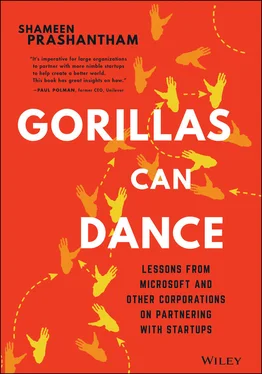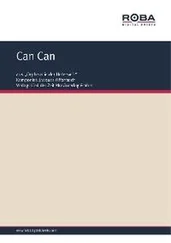The rationale was that one of the ways that Microsoft was especially well placed to add value to startups was by helping them sell to Microsoft's enterprise clients – but this typically meant that the startup would have to be somewhat mature to be able to provide workable solutions. Moreover, it seemed that early-stage startups now had other options, such as more conventional accelerators, to turn to. Rather than helping an early-stage startup get to a series A round of funding it seemed more prudent to attract B2B startups that already had reached, or were close to, this milestone and to then propel such startups to scale up by helping them get enterprise customers. In subsequent discussions with other members of the global team based in Israel, it became apparent that Microsoft was going to transform its accelerators into “scalerators.”
In 2017, Microsoft launched a new accelerator in Shanghai – China is the only country that has two accelerators – and, sure enough, the focus was explicitly on more mature startups. The transition from accelerator to scalerator seemed to be a natural transition as Microsoft became aware that one of its key ways to add value to startup partners was to help them connect with corporate clients, and this was more likely to be feasible when the startups were relatively mature and so were their offerings. James Chou, who led the accelerator's operations, had assembled an impressive set of startups, all of which had some traction including, in most cases, series A funding. Meanwhile, the Bangalore accelerator had a new leader, Bala Girisaballa, who also was targeting more mature startups.
In 2018, a new avatar of Microsoft's programmatic startup engagement, Microsoft for Startups, was announced. 44 Shortly before that, I had visited Tel Aviv and gotten a further update from Amir Pinchas, who had worked closely with Weisfeld from the start, that a big reorganization was in the cards. Not long after, Weisfeld and his influential team in Israel moved on. When I got an update on the new program, Annie Parker, the then-global lead, was based in Sydney, Australia – the site of the newest addition to the Microsoft accelerator program. She confirmed that what I had observed in my interactions over the previous couple of years had now become official strategy: the focus was on scaling up relatively mature startups. Microsoft for Startups also included a corporate venture capital arm, 45 Microsoft Ventures (later renamed M12 46 ).
Perhaps most interestingly, a major feature of startup engagement was a big focus on co-selling startup solutions built on Microsoft's cloud technologies.
Aligning Incentives to Co-Sell with Startups
The Co-Sell program is a key feature of the ScaleUp program, which is what the Microsoft Accelerator program became under the Microsoft for Startups umbrella announced in 2018. What this means is that startup offerings could contribute to a co-sell repository. Microsoft incentivized its salespeople to co-sell partners' offerings just as much as to sell Microsoft's own. The sales force has became incentivized to increase consumption of Microsoft's Azure cloud service, and co-selling startup partners' Azure-based offerings was entirely consistent with this strategy.
The Microsoft journey with startup partnering thus reached an intriguing stage – from business as un usual to business as usual. That is, partnering with startups had become tightly aligned with the core of the company's cloud-first strategy. The decisive reorientation of startup engagement to co-selling in 2018 was arguably the culmination of an evolutionary process over a period of more than a decade – notably kickstarted by the BizSpark program introduced in 2008. Dave Drach, who had been part of the original BizSpark team, commented to me: “BizSpark was originally established to get startups on the platform. Now, everyone gets it. So, since that original problem has been solved, the question is: how to yield more value? The answer: through deep engagement yielding more business impact. Satya Nadella has made Azure core to Microsoft's strategy and is concerned with how to make it work for startups.”
During 2019, I came across various instances of Microsoft helping its current and alumni startup members to connect with large corporations, such as Walmart and Merck, in a way that was consistent with the new emphasis on co-selling solutions. In essence, Microsoft began connecting members of its startup community with that of more recent entrants to startup partnering in a way that was win-win for the two large corporations as well as the startups. That is, Microsoft could help its startup partners get a corporate client while the latter would be able to quickly get access to high-quality startups. As noted at the outset, in 2019, Walmart's CEO Doug McMillon was given a first-hand account of how Walmart was working with startups that were alumni of Microsoft's accelerator program.
Partnering with Social Ventures
In February 2020, the Microsoft Global Social Entrepreneurship Program, a new global initiative specifically targeted at social entrepreneurs, was launched. My account of Microsoft's startup partnering journey concludes with this announcement by Jean-Philippe Courtois, 47 EVP and president, Microsoft Global Sales, Marketing, and Operations, warranting a final observation regarding social impact.
Even prior to the formal launch of this new initiative, social enterprises had appeared on the corporation's radar. 48 This was evident during my research field trips to Africa. The Microsoft4Afrika initiative had been an avenue through which Microsoft was engaging with African startups, as I learned from Muhammad Nabil, the then head of ISVs and Startups Recruitment. These included social enterprises. During a field visit to Kenya – where Nadella had launched Windows 10 – I learned about Microsoft's efforts to partner with Twiga Foods, a social enterprise that was linking traditional fruit growers with retail outlets, and was using Azure technology.
Microsoft had engaged with social enterprises in other regions as well, such as the Indian subcontinent. To illustrate, Sehat Kahani is a Pakistani startup founded by Dr. Sara Saeed (CEO) and Dr. Iffat Zaffar (COO) that uses telemedicine to provide remote medical advice to patients while at the same time tapping the underutilized capacities of women doctors. In part through partnering with Microsoft, 49 this social enterprise was able to scale its mobile app and gain traction owing to the Covid-19 pandemic, which greatly increased the need for telemedicine.
Through its Global Social Entrepreneurship Program, Microsoft would partner with social enterprises around the world that used Azure “to help create a sustainable, accessible and equitable world” 50 by offering Microsoft Philanthropies grants, connections to other organizations, go-to-market support, and free access to Microsoft technologies including $120,000 of free Azure cloud and $1,000/month of GitHub Enterprise. 51 Shaloo Garg, Global Lead, Global Microsoft Social Entrepreneurship Program, stated, “Our #1 operating principle for this program is simple. We want ‘Founders’ to be the center and their success is what drives us. When we designed this program, our key driver was to offer core components like Technology, Grants, Corporate Innovation (co-sell to enterprise customers) to help drive startup success. And we are absolutely jazzed about it.”
Three startups were announced as the initial participants: OmniVis, which had built a smartphone-based cholera detection system; Seabin, which tackles marine litter such as microplastics; and Zindi, which generates AI solutions for Africa through its web platform. 52 Success would be measured both by profitability and social impact, including commitment to the ethical and responsible use of AI. 53
Читать дальше












